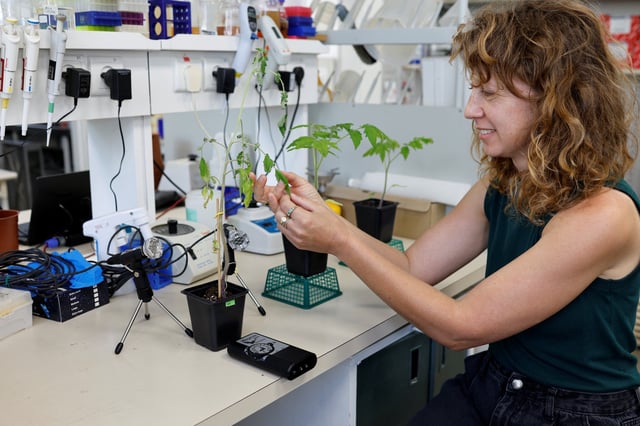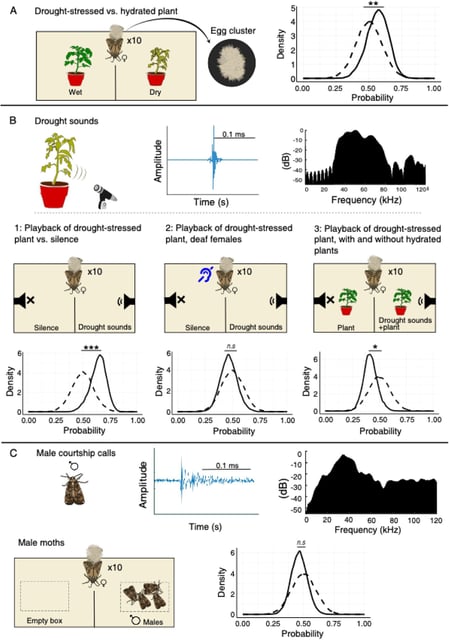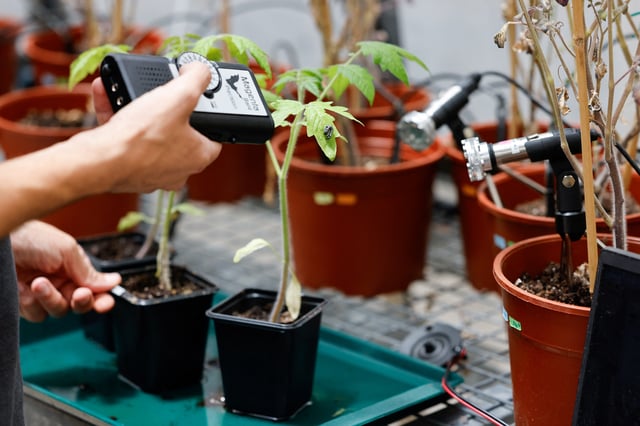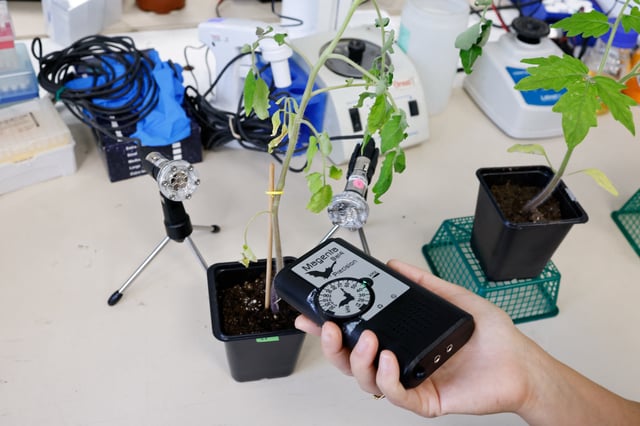Overview
- Researchers at Tel Aviv University found that dehydrated tomato plants emit ultrasonic distress signals beyond human hearing that female Egyptian cotton leafworm moths can detect.
- In playback trials, moths avoided healthy plants broadcasting drought-induced distress sounds and showed no preference when exposed to male moth ultrasounds, confirming a specific response to plant signals.
- The eLife preprint, led by Rya Seltzer and Guy Zer Eshel under Professors Yossi Yovel and Lilach Hadany, isolated acoustic cues to demonstrate sound-guided oviposition decisions.
- The findings reveal that insects can eavesdrop on plant stress signals, adding an acoustic dimension to ecosystem interactions.
- Researchers are now examining how other insects respond to plant sounds and exploring sound-based approaches for monitoring crop health and deterring pests.



